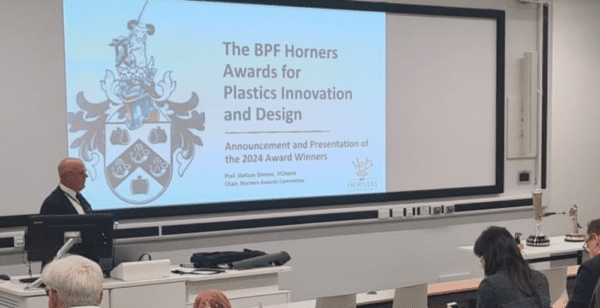
OMS LubriTek Eliminates Overheating, Filter Blockages and Sticking Valves at High Volume Blow Moulder
When Alpla UK, a world leader in the manufacture of plastic bottling solutions, was experiencing issues with the performance of its hydraulic systems, they called the specialist team at OMS Lubritek. Read this case study to find out how Alpla’s issues were eliminated within a period of a few months.
Alpla is a world leader in developing and producing innovative plastic packaging solutions. Alpla UK specialises in offering in-house production facilities with four sites across the UK delivering various packaging solutions for their customers.
The Alpla in-house production facility in Aston Clinton has capacity in excess of 500 million milk bottles per year, operating ten blow moulding lines running 24/7 with product supply critical to their customer’s manufacturing facility.
The Challenge
With extremely demanding production, including 24/7 manufacturing, fast cycling times, and high oil temperatures of 50°C, strain was being placed on Alpla’s hydraulic system. Alpla were experiencing three specific issues with its hydraulic system performance; these were:
- System overheating (at 60°C) causing machines to cut out
- Premature filter blockages
- Issues with sticking valves
The Solution
With the evidence OMS LubriTek had presented, it was agreed that the first system would go through the VRT UltraClean oil change process. OMS LubriTek also recommended upgrading the hydraulic oil to its unique, proven energy-efficient grade GPII UltraLife EE 46.
This would offer not only efficiency improvements of 8.5%, but also a TOST (turbine oil stability test) life of 6225 hours and a viscosity index of 141. OMS LubriTek could then demonstrate it would provide much higher resistance to oxidisation and performance at a higher temperature when compared to the standard mineral grade oil currently used.
Being the first system, OMS LubriTek oil management technicians drained the hydraulic tank before adding the VRT UltraClean. This allowed them to highlight the performance once the varnish and sludge had been dissolved, making it soluble in the used hydraulic oil.
After three days of production, OMS LubriTek oil management technicians carried out a full oil change, including flush and filter change. This included a fill and post-oil change filtration to meet the ISO4406 cleanliness level of 17/14/11.
Rowan Jones, Maintenance Manager at Alpla, commented: “Moving from our previous lubricant supplier, over to OMS LubriTek was like moving from night to day. It was clear that we were not receiving the service we thought we were. Since we have been working with Jamie and the team we have the confidence that we are not only getting the right lubricants for our machines, but also getting the right information back about their condition. Our failure rate on hydraulic components has fallen considerably thus increasing machine reliability.
The strong partnership between us and OMS LubriTek made the transition easy. The team were always here when planned, carried out works in a very professional manner and continue to help and advise us when needed.
All of these issues caused production downtime, leading to lost production, and ultimately a higher production cost which needed to be absorbed by the manufacturer. Neither a preferable option for a high-volume manufacturer!
The Engineering Manager at Alpla UK noticed on LinkedIn a VRT UltraClean case study that OMS LubriTek had posted and got in contact as the application mentioned the customer was suffering from similar issues.
Although Alpla UK had an oil analysis program in place, the incumbent supplier just sent reports through saying everything was all OK, which it clearly wasn’t!
OMS LubriTek arranged a site visit to discuss their specific needs and how the OMS LubriTek team could offer an effective oil management program. OMS LubriTek took oil analysis samples which were sent to an independent laboratory, before carrying out a video call to discuss the results.
The OMS LubriTek team explained how its VRT UltraClean, a solvent-free additive, will effectively remove varnish and sludge from hydraulic systems and solve Alpla’s issues.
Varnish and Sludge: The Problem Identified
Varnish and sludge are a by-product of oxidised hydraulic oil. Oxidisation is caused over time by heat, pressure and contamination. In the early stages, the varnish is soluble within the hydraulic oil; however, over time, this becomes insoluble, causing the varnishing effect and the issues experienced.
The overheating is caused due to varnish coating the oil cooler elements, which prevents effective cooling due to a lack of heat dissipation. The varnish levels increase, and the issue is exacerbated!
Another reason why the varnish and sludge form are because oil changes were planned to be carried out in line with the analysis results, and the previous oil analysis reports incorrectly stating the oil was still in good condition. Hydraulic oil does not last forever, it has a useful life, and due to oxidisation and additive pack deletion, it does need a maintenance schedule in place to maintain and replace the oil, to ensure its long lasting performance.
The Results
With the first machine completed and running smoothly, OMS LubriTek proposed to run out the full program across the remaining nine systems. To assist with budgeting, the overall project cost was split over 12 equal monthly instalments, with visits to be planned around preventative maintenance schedules.
However, due to the total elimination of the problems issues, Alpla decided to accelerate the project and upgrade all machines over a six month period. The cost of oil changes, production downtime and expensive spares meant that the calculated payback and cost savings more than justified bringing the initiative forward.
It is now over 12 months since OMS LubriTek conducted the first system VRT UltraClean oil change and converted to GPII UltraLife EE 46, and all previous issues have been eliminated.
Alpla UK and OMS LubriTek have developed a great partnership, managing an effective oil management program that maximises production and improves efficiencies.








